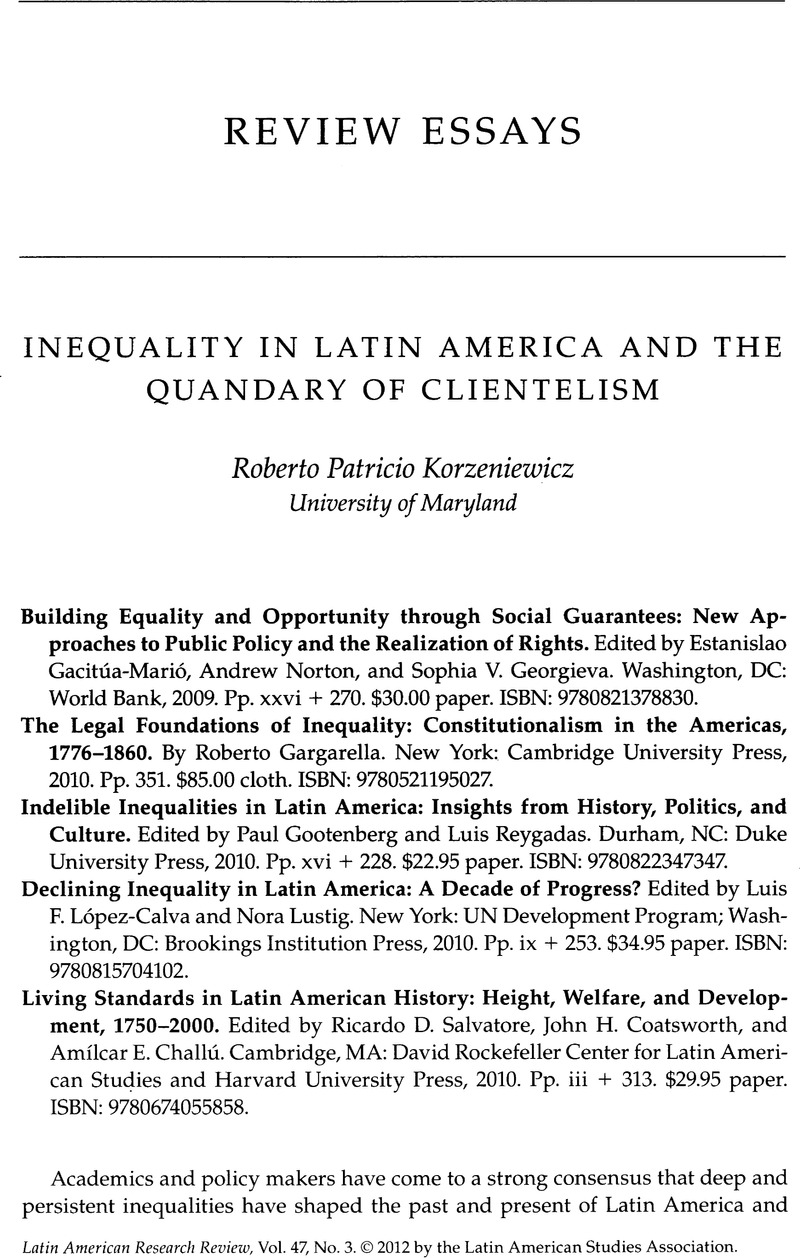Article contents
Inequality in Latin America and the Quandary of Clientelism
Review products
Published online by Cambridge University Press: 05 September 2022
Abstract

- Type
- Review Essays
- Information
- Copyright
- Copyright © 2012 by the Latin American Studies Association
References
1. An example of the latter view is David De Ferranti, Guillermo E. Perry, Francisco H. G. Ferreira, and Michael Walton, Inequality in Latin America: Breaking with History? (Washington, DC: World Bank, 2004).
2. For a useful analysis of some of the problems that have developed more recently in health-care reform in Chile, see Nuria Cunill Grau, María Margarita Fernández, and Marcos Vergara, “Gobernanza sistémica para un enfoque de derechos en salud: Un análisis a partir del caso chileno,” Salud Colectiva 7, no. 1 (2011): 21-33.
3. The case of Cuba illustrates better than others the skepticism with which subaltern groups can view public policies aimed at the poor and disadvantaged. It also reveals how the persistence of inequality is an ex post facto conclusion. For example, the racial inequality of Cuba in 1960 is not equivalent to the racial inequality of 2011; the latter is not a remnant, but a new ensemble of interactions that only through a certain lens can be classified as a continuity.
- 3
- Cited by




